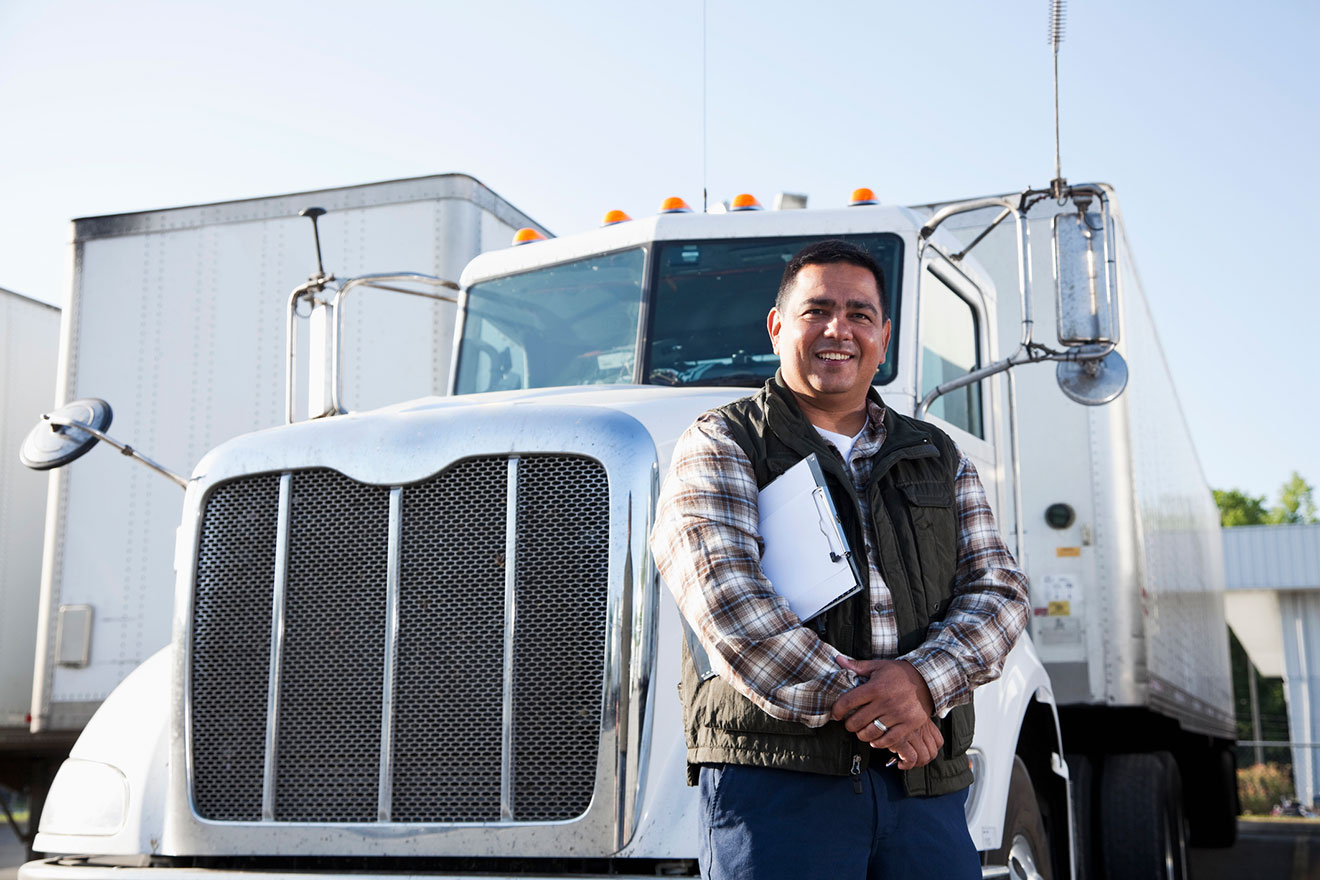How Single Point Will Help Get Your Company Started
![]()
Proper Registration
- Forming your business, such as LLC
- Obtaining your MC Number and DOT
- Filing all required paperwork
![]()
No Administrative Fees
Filling and administrative fees typical from $1000-1700 however, we offered waived fees when you sign up for freight factoring services. This means FREE filling and administration to set up your business.
![]()
Expert Guidance & Resources
Gain exclusive access to Single Point's industry experts, tools, and resources you need for a successful first year in business!

Explore Personalized Solutions
Our solutions for trucking companies continue even after your business is set up and trucks are on the road. We provide a wide range of solutions to help you manage cash flow, save on fuel, access to insurance assistance, book loads, and much more!
Freight Factoring
- Receive same day pay or your unpaid invoices
- Waive setup and administrative fees for set up
- Sign up process included in setup
- No hidden fees—ever
- Dedicated personal account representatives
- Invoice and Collections
- Manage the entire process from the convenience of your phone
Fuel Discount Program
- The Single Point Fuel Card powered by A to B
- Accepted by truck stops nationwide
- $0 in hidden fees
- Up to 35% off on non-fuel purchases
- Fuel Advances
- Up to 50% same-day fuel advances
- Fuel Credit Lines
- Up to $2,000 each week
Trucking Insurance
Find the insurance coverage you need along with insurance down payment assistance!

Fuel your Future with the Trucking Experts
We're more than just a solutions provider-we're trucking industry experts who understand the road ahead. From startup support to factoring, fuel cards, insurance, and loads, we provide the tools and guidance to help you hit the ground running. Let's build your business together!/p>
Frequently Asked Questions
About Start-up Program
How to start a trucking company?
Starting a trucking company involves several key steps to ensure compliance and profitability. First, decide on a business structure, such as an LLC, and register your company to obtain an EIN (Employer Identification Number). Next, apply for a USDOT number and MC authority through the FMCSA to legally operate your trucking business. You’ll also need to secure proper insurance coverage, which includes liability and cargo insurance, and ensure your business meets federal and state regulations. Once you’ve purchased or leased your trucks, set up a system for managing loads, dispatching, and finances. Lastly, consider partnering with freight brokers or using load boards to find consistent work, and explore factoring services to maintain operations and steady cash flow.
How much does it cost to start a trucking company?
The cost to start a trucking company varies depending on factors like your location, equipment needs, and business setup. Consider all costs to be covered like business registration, obtaining a USDOT number and MC authority, insurance, permits, and initial truck costs. If purchasing a truck, this can significantly increase costs. Other expenses, such as fuel, maintenance, and software for managing operations, should also be considered in your startup budget.
What type of insurance do I need for my trucking company?
To operate a trucking company, you'll need several types of insurance to meet legal requirements and protect your business. These typically include liability insurance (to cover damages or injuries caused by your truck), cargo insurance (to protect the goods you transport), and physical damage insurance (to cover damage to your trucks). You may also need bobtail insurance (when trucks are driven without a trailer), and workers’ compensation insurance (if you have employees). The exact coverage depends on your operations and the states you’ll be driving in. Always consult with an insurance professional to get the insurance coverage that best fits your needs like, Single Point Insurance.
Should I buy or lease my first truck?
Deciding whether to buy or lease your first truck depends on your financial situation and long-term goals. Buying a truck gives you full ownership and can save money in the long run, but it requires a large upfront investment or financing. Leasing typically has lower initial costs and may include maintenance, making it a good option for those with limited capital or who want to upgrade trucks more frequently. Consider your budget, cash flow, and how much control you want over the vehicle before making a decision.
How do I find loads for my trucking company?
Finding loads for your trucking company involves a few strategies. You can start by signing up for load boards, where shippers and brokers post available freight. Partnering with freight brokers, like Single Point
Logistics, is another option to secure steady work. Building relationships directly with shippers can also provide long-term contracts and consistent loads. Additionally, networking within the trucking industry and joining professional associations can open doors to new opportunities.
What is freight factoring, and how does it help with cash flow?
Freight factoring is a financial service where trucking companies sell their unpaid invoices (freight bills) to a factoring company in exchange for immediate cash. This helps improve cash flow by providing quick access to funds, rather than waiting 30-90 days for clients to pay. The factoring company typically advances a percentage of the invoice amount upfront, with the balance paid after the client settles the invoice, minus a small fee. This service helps trucking businesses maintain steady operations, pay bills, and avoid cash flow gaps, allowing them to focus on growing their business rather than chasing payments.
How do I save money on fuel?
Saving money on fuel is crucial for trucking businesses, and there are several strategies to reduce costs. Start by enrolling in fuel card programs, which offer discounts and rewards at participating fuel stations. Plan efficient routes using GPS systems to minimize mileage and avoid heavy traffic. Regular vehicle maintenance—such as keeping tires properly inflated, changing air filters, and servicing engines—can improve fuel efficiency. Encourage fuel-efficient driving habits, like maintaining steady speeds, reducing idling time, and avoiding rapid acceleration. Additionally, compare fuel prices along your routes to identify stations with the best rates.



